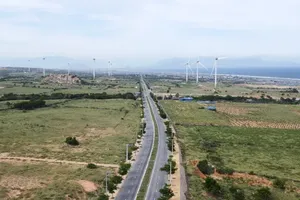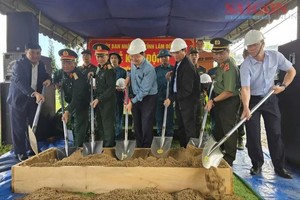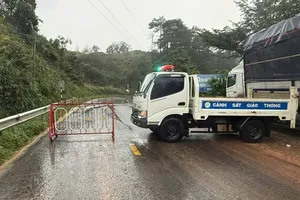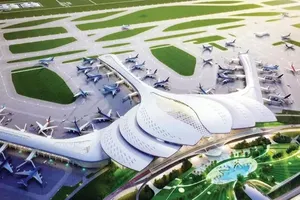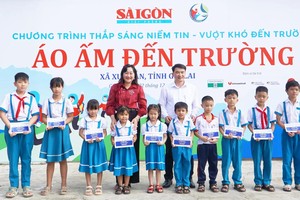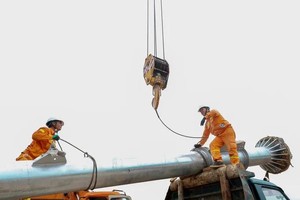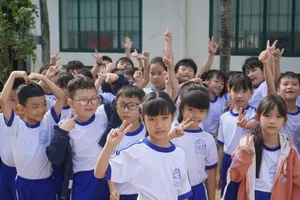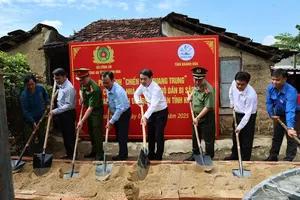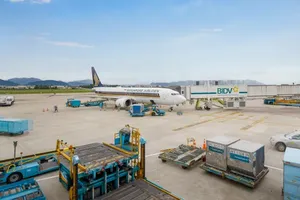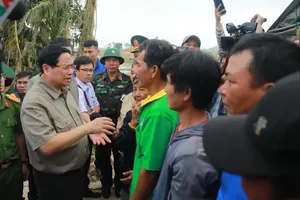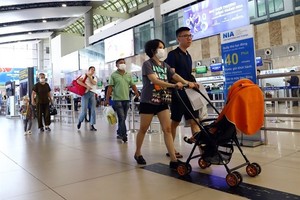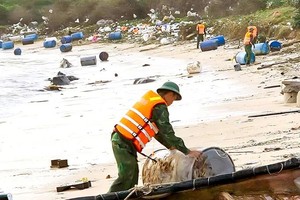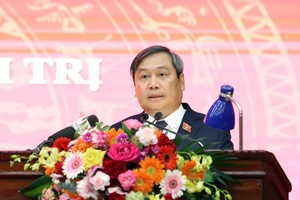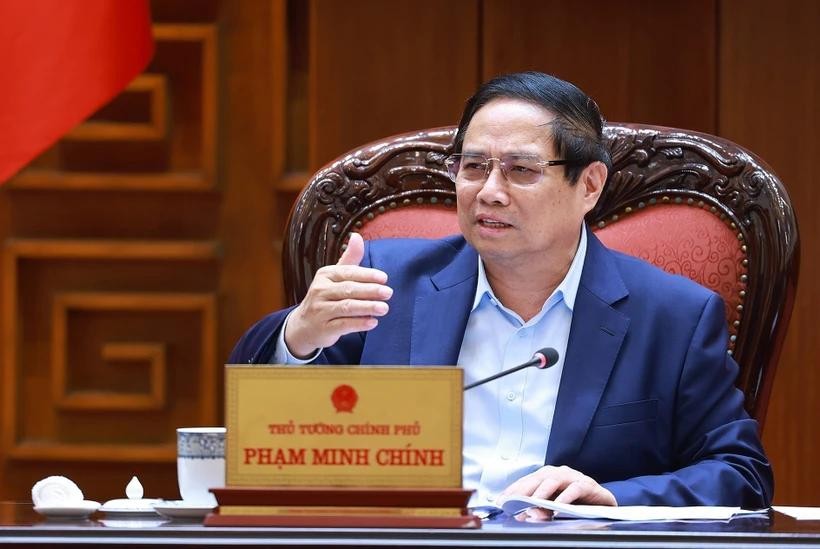
Prime Minister Pham Minh Chinh on April 5 chaired a meeting between standing cabinet members and leaders of ministries, sectors, and localities to promote balanced, sustainable, and mutually beneficial economic and trade cooperation with the US, following President Donald Trump’s announcement of a new tariff policy.
Earlier, on April 3, right after the US President’s move, standing cabinet members met to assess the situation, and put forward tasks as well as response solutions.
The Government's leaders also held working sessions with US businesses and experts to listen to and address difficulties and obstacles, deal with US firms’ proposals, promote the implementation of US-invested projects in Vietnam, advance negotiations to increase imports of various goods from the US, and adjust certain tariffs on imports from the US.
PM Pham Minh Chinh affirmed that Vietnam’s recent concrete and practical actions have been highly positive and appropriate, demonstrating its goodwill in fostering balanced and sustainable economic and trade cooperation with the US.
However, if the US implements its new tariff policy in the coming time, it could affect Vietnam’s economic development. Therefore, continued negotiation efforts are essential to reach a common understanding, he noted.
Highlighting the lessons learned from coping with past upheavals, difficulties, and challenges, such as the Covid-19 pandemic, natural disasters, global economic downturns, and international conflicts that disrupted supply, production, and distribution chains, PM Pham Minh Chinh emphasised that Vietnam remained calm, steadfast, persistent, and resilient. The country did not panic but instead responded in a proactive, flexible, timely, and effective manner. It turned challenges into opportunities, overcame its own limitations, and demonstrated the wisdom of the Party as well as the flexible and efficient governance of the Government and relevant agencies.
According to the leader, the Vietnam–US relationship is a special one and serves as a model in international relations. From former enemies, they have become each other’s leading partners, with economic and trade cooperation being a key pillar that has brought mutual benefits to both nations and their people. The two economies are complementary rather than directly competitive.
Stressing that the implementation of the new US tariff policy would affect Vietnam’s export markets as well as some of its key trade partners such as China, Japan, the Republic of Korea, Europe, and ASEAN, and even US consumers, he highlighted the need to remain steadfast and persistent in pursuing a foreign policy of independence, self-reliance, diversification and multilateralisation, being a good friend and reliable partner of all countries, safeguarding national independence, sovereignty, and territorial integrity, while building a self-reliant and resilient economy that actively and effectively integrates into the global economy in a deep and substantive manner.
The Government leader called for the implementation of both immediate and long-term, direct and indirect, strategic and specific, and targeted and comprehensive adaptive solutions. These should include both tariff and non-tariff measures and be carried out through all available channels using political, diplomatic, economic, and trade tools, he stated, adding that all efforts must consider the overall picture of Vietnam’s external economic relations and ensure that other markets remain unaffected.
The ultimate goal is to maintain national stability, create a peaceful, cooperative, and development-oriented environment in the region and the world, and support Vietnam’s fast but sustainable economic growth, PM Pham Minh Chinh emphasised.
It is a must to turn difficulties and challenges into opportunities, PM Pham Minh Chinh said, adding that the US's new tariff policy also presents a chance for Vietnam to innovate, make breakthroughs, restructure its economy, products, markets, and supply chains.
He affirmed that the government will not change its growth target of 8 percent in 2025, aiming to build momentum to achieve a double-digit growth in the coming years.
Accordingly, the PM directed that, along with flexible and effective macro-economic policy management to ensure macro-economic stability, control inflation, and maintain major economic balances, ministries, sectors, and localities must revitalise traditional growth drivers such as investment, exports, and consumption, especially diversifying products, markets, and supply chains, while also promoting new growth drivers and accelerating public investment.
At the same time, it is necessary to consider policies such as tax and fee reductions to support businesses affected by the US tariff policy. He also stressed the need to promote domestic business activities and consumption, and strictly control product origin, branding, intellectual property rights, and efforts to prevent trade fraud.
The Government leader called for continued diplomatic exchanges and engagement with the US at all levels and through all channels to address its concerns in a spirit of mutual benefit. He emphasised the necessity to work closely with US businesses to remove difficulties, deal with their proposals and petitions, and promote US investment projects in Vietnam.
Furthermore, there should be a review of import items, with the aim of increasing imports from the US to balance trade, he said, adding that Vietnam will also continue studying and considering appropriate tariff reductions on certain US imports.
Assigning specific tasks to each ministry and sector, PM Pham Minh Chinh asked Deputy PM Ho Duc Phoc, who will make a working visit to the US, to focus on implementing and realising the contents reached by Party General Secretary To Lam and US President Donald Trump during their phone talks on April 4.
He also assigned Deputy PM and Minister of Foreign Affairs Bui Thanh Son, who leads the task force responding to the US's tariff policy, to continue proposing and executing additional solutions to ensure balanced and sustainable Vietnam–US economic and trade cooperation.
